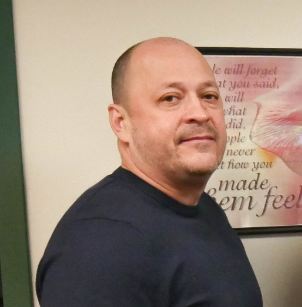Drug overdose deaths up, but help is here
Drug overdose deaths nationally hit a record high in 2017, with more than 72,300 Americans lost. That’s a casualty rate 6.6 percent higher than the previous year, according to new preliminary data from the federal Centers for Disease Control.
In New Jersey, nearly 1,900 people have fatally overdosed so far this year, according to state data. In our region, Monmouth County is one of the state’s deadliest counties for people who struggle with substance abuse, with 142 overdoses this year, while another 439 were saved by life-saving, overdose-reversing Naloxone shots, the data shows. Ocean County reported 118 fatal overdoses and 402 saved; Mercer, 105 overdoses and 296 saved; and Burlington, 96 overdoses and 529 saved.
A prolific killer
Drug overdoses kill more people than guns or car crashes, locally and nationally, statistics show. Fentanyl is fueling the high death rate, experts agree, a trend that prompted New Jersey Attorney General Gurbir Grewal in February to create a new office to fight the opioid crisis.
And this is a crisis we can fight successfully, experts agree.
 Many people may be reluctant to seek treatment because of the stigma attached to substance use. But addiction is a disease, and professional care can help people with a substance abuse disorder recover and regain stability in their lives, according to Catholic Charities, Diocese of Trenton addictions specialists.
Many people may be reluctant to seek treatment because of the stigma attached to substance use. But addiction is a disease, and professional care can help people with a substance abuse disorder recover and regain stability in their lives, according to Catholic Charities, Diocese of Trenton addictions specialists.
“The opioid epidemic striking our communities is at an all-time high,” said Gustavo Mejia, Catholic Charities’ director of Addiction Recovery Services (pictured at right). “Many young people enter addiction treatment without the skills necessary to sustain a full-life recovery. As providers, we have to work with people to develop coping and life skills in order to maintain abstinence and life stability once they begin recovery. People can relapse because they lack the skills and ability to manage their daily lives after many years of addiction. This creates a cycle of long-term relapse.”
Compassionate care
Mejia and his colleagues help people develop a clinical action plan to realistically reach their life goals, prevent pitfalls in recovery that lead to relapse, and set up a support system to deal with triggers that could lead to relapse.
“Addiction is a lifelong battle, and we can help people develop the strategies to be successful in recovery,” Meijia said. “In addiction treatment, the 50th time in recovery might be the one that works.”
For help: Anyone struggling with substance abuse can get professional care at Catholic Charities by calling our Access, Help and Information Center at (800) 360-7711.
To subscribe to our blog posts and news releases, fill out the fields below.

